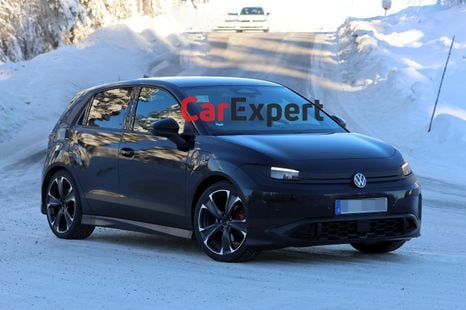

Damion Smy
2026 Volkswagen ID. Polo EV spied along with ID. Polo GTI electric hot hatch
6 Hours Ago
The fuel economy of large SUVs tends to suffer because of their size, but some are more efficient than you'd expect.

Deputy Marketplace Editor
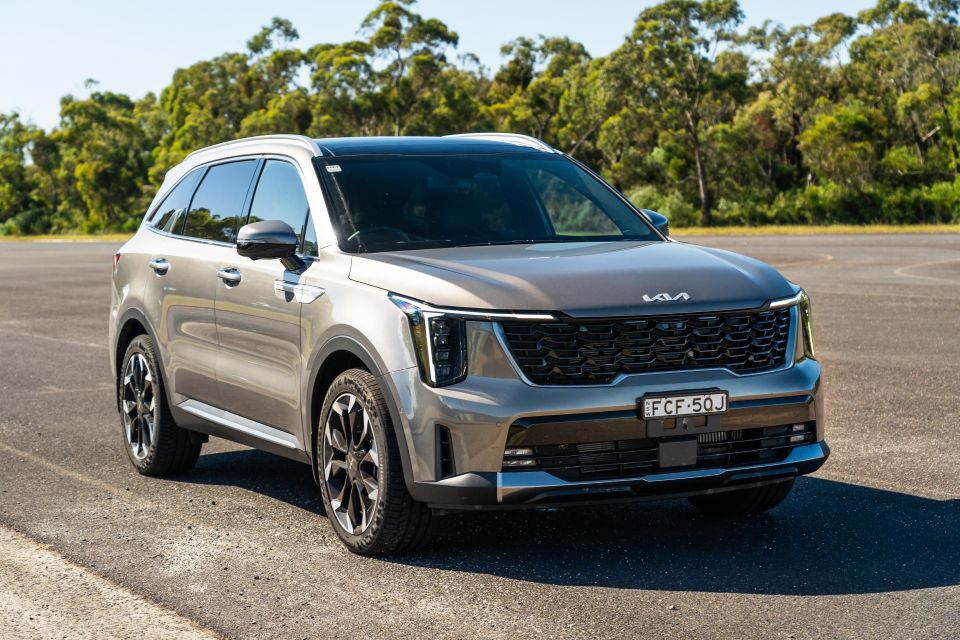

Deputy Marketplace Editor
Mega-sized family wagons have a reputation for guzzling fuel, and the numbers only blow out further when you start to throw kids and suitcases in the back.
However, times are changing and modern engines are more efficient than ever.
We’ve gathered the data, using claimed combined fuel economy figures provided by manufacturers, to find out which large SUV is the most fuel efficient.
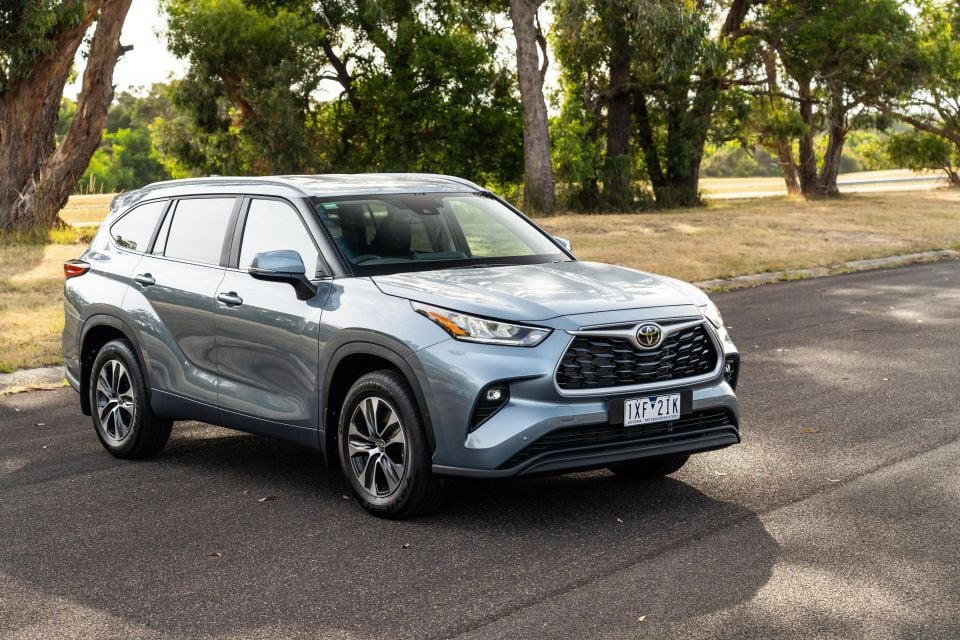
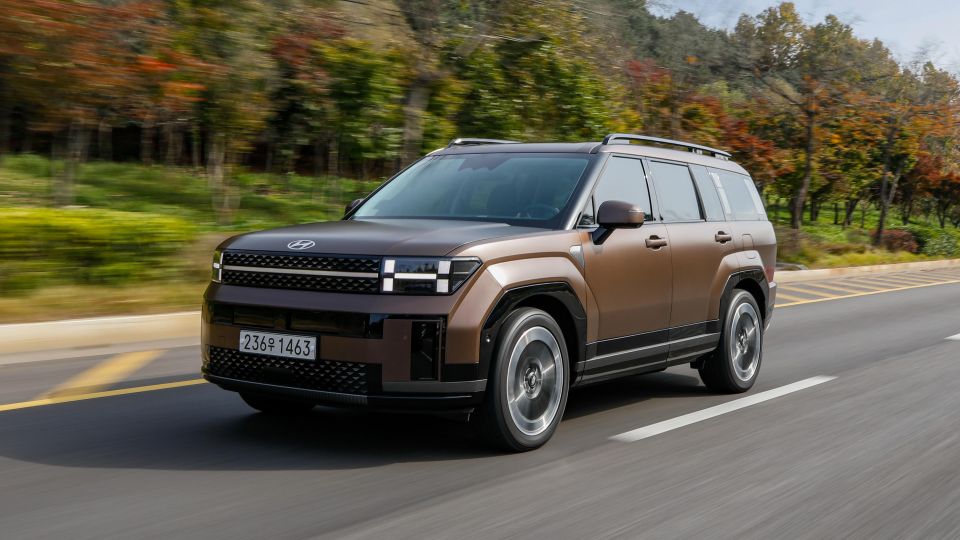
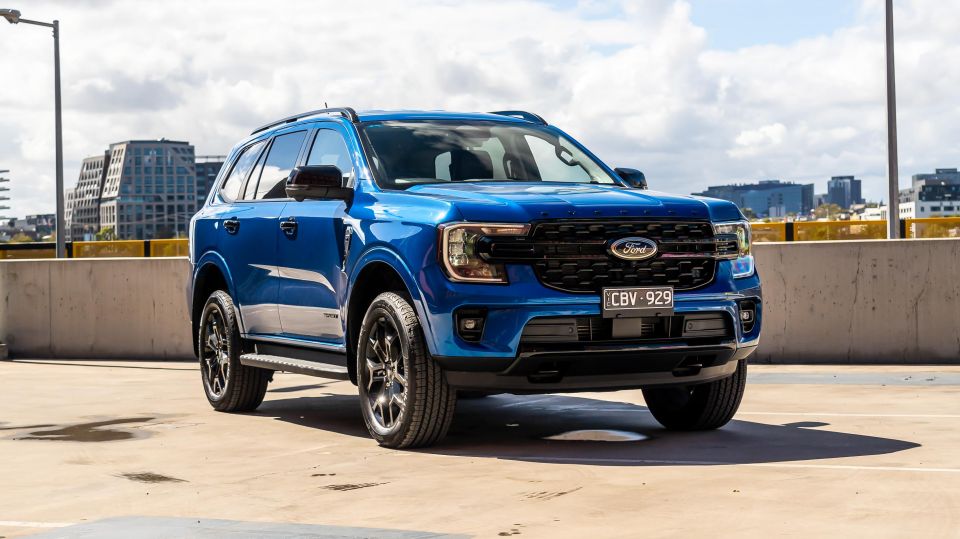
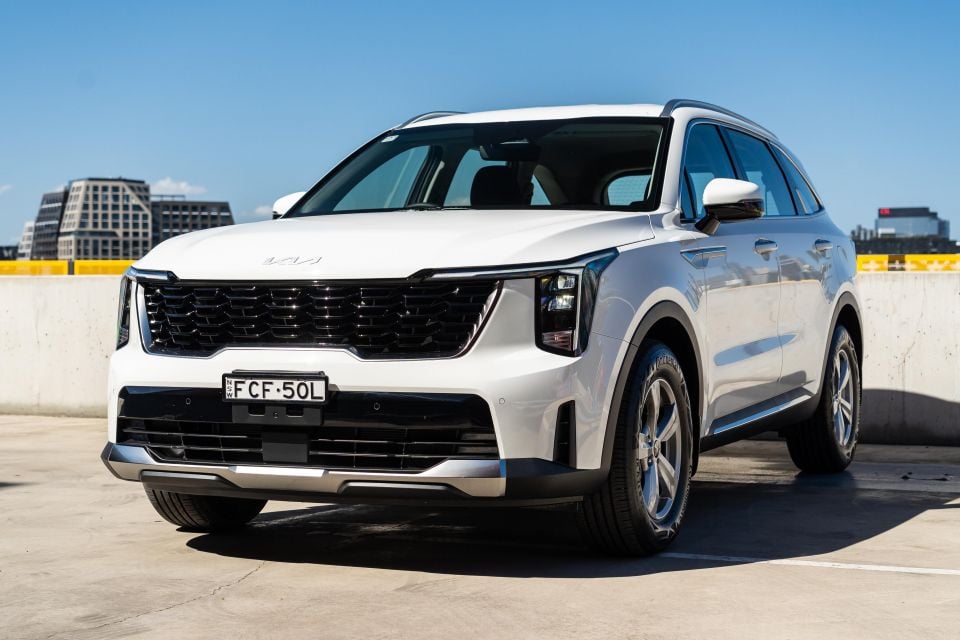
These are the cars featuring an internal combustion engine that sit within the large SUV under $80k category in the VFACTS sales charts published by the Federal Chamber of Automotive Industries (FCAI).
We’ve also measured based on the variant with the best fuel economy in the range, as some trim or powertrain options may see the figures quoted here increase slightly.
| Make/model | Fuel economy (claimed) | Fuel tank capacity | Fuel type |
|---|---|---|---|
| Kia Sorento | 5.4L/100km | 67L | 91 RON |
| Hyundai Santa Fe | 5.6L/100km | N/A | 91 RON |
| Toyota Kluger | 5.6L/100km | 65L | 95 RON |
| Ford Everest | 7.1L/100km | 80L | Diesel |
| Subaru Outback | 7.3L/100km | 63L | 91 RON |
| Hyundai Palisade | 7.3L/100km | 71L | Diesel |
| Skoda Kodiaq | 7.5L/100km | 60L | 95 RON |
| Toyota Fortuner | 7.6L/100km | 80L | Diesel |
| Volkswagen Tiguan Allspace | 7.7L/100km | 60L | 95 RON |
| Isuzu MU-X | 7.8L/100km | 80L | Diesel |
| Mitsubishi Pajero Sport | 8.0L/100km | 68L | Diesel |
| GWM Tank 300 | 8.4L/100km | 75L | 91 RON |
| GWM Tank 500 | 8.5L/100km | 80L | 91 RON |
| Ssangyong Rexton | 8.7L/100km | 70L | Diesel |
| LDV D90 | 9.1L/100km | 75L | Diesel |
| Jeep Wrangler | 9.2L/100km | 81L | 95 RON |
| Nissan Pathfinder | 10.0L/100km | 71L | 91 RON |
Click on a car’s name above to jump directly to its information on the page, or continue scrolling for the full list.
The Kia Sorento is one of just five cars in this segment that comes with the option of hybrid power, and that’s of huge benefit when it comes to efficiency.
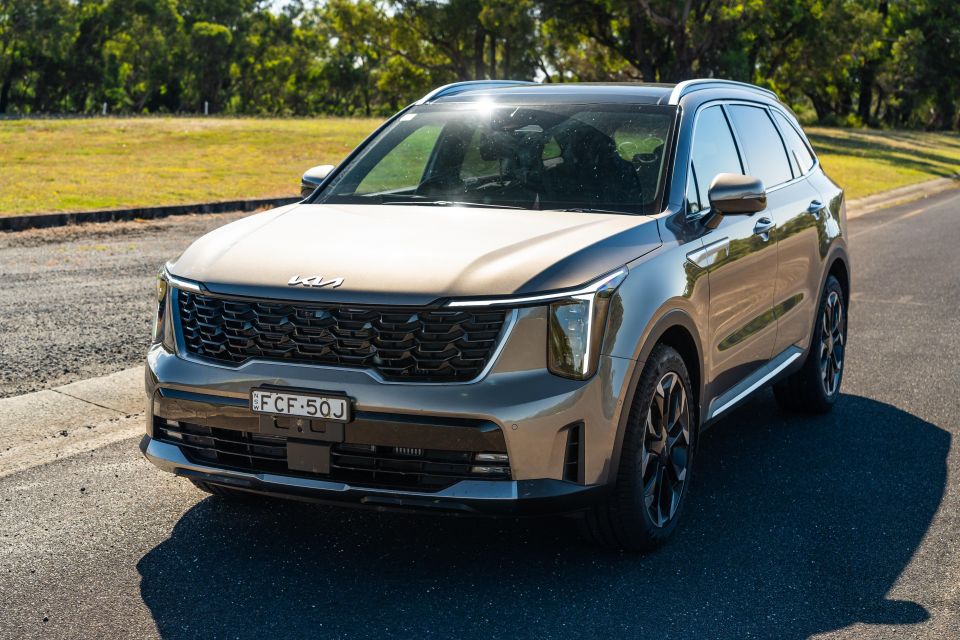
Power in the Kia Sorento Hybrid comes from a 1.6-litre turbocharged four-cylinder petrol engine teamed with a six-speed automatic, as well as a 44kW/264Nm electric motor and 1.49kWh lithium-ion polymer battery.
Resulting fuel economy is claimed at 5.4L/100km, the best of any car on this list.
There’s an issue, though. Electrified variants of the Sorento are currently available in very limited volume, with just 20 hybrids on offer per month.
Pricing for the battery-assisted Kia lie between $70,330 before on-road costs and $73,330 plus on-roads.
| Kia Sorento | |
|---|---|
| Fuel economy (claimed) | 5.4L/100km |
| Fuel tank capacity | 67L |
| Fuel type | 91 RON |
BUY: Get in touch with a dealer about a Kia Sorento MORE: Everything Kia Sorento
Sitting just behind the Sorento is its Korean cousin, the new generation Hyundai Santa Fe, which consumes a claimed 5.6L/100km.
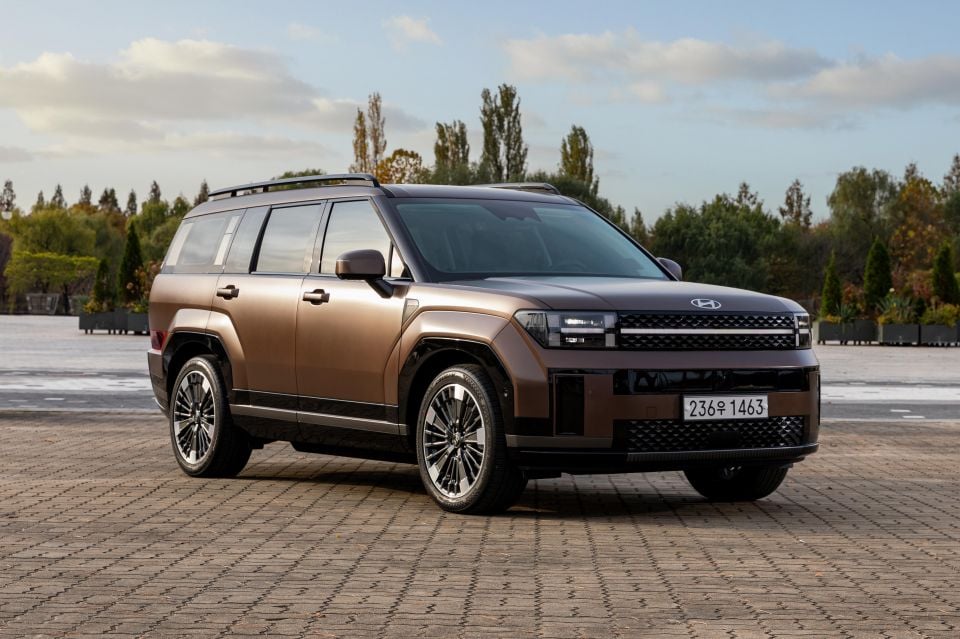
Available with solely hybrid power, the latest generation of Hyundai’s large SUV is powered by a turbocharged 1.6-litre four-cylinder petrol engine mated to a 47.7kW electric motor, producing a system output of 173kW.
Standard features on the new model include a 12.3-inch touchscreen infotainment system, 12.3-inch digital instrument cluster, wireless smartphone mirroring, 20-inch alloy wheels, 10-way power-adjustable driver’s seat and a power tailgate.
Pricing kicks off at $55,500 before on-road costs for the front-wheel drive base version.
| Hyundai Santa Fe | |
|---|---|
| Fuel economy (claimed) | 5.6L/100km |
| Fuel tank capacity | N/A |
| Fuel type | 91 RON |
BUY: Get in touch with a dealer about a Hyundai Santa Fe MORE: Everything Hyundai Santa Fe
The Toyota Kluger rounds out the podium, sipping 5.6L/100km in hybrid form.
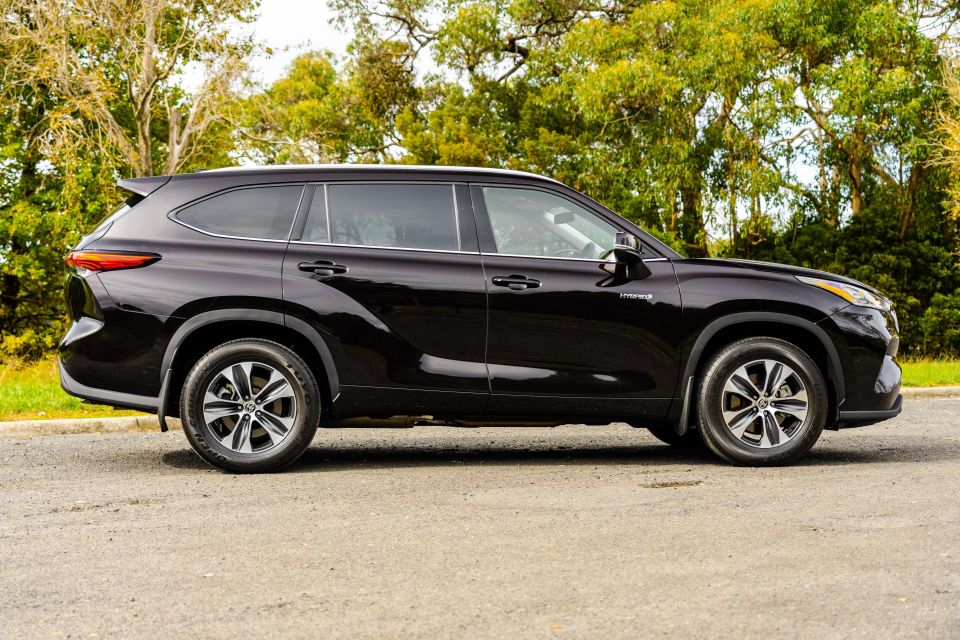
It utilises a naturally aspirated 2.5-litre four-cylinder petrol engine plus three motor generators, one on the front axle and two on the rear.
The cheapest hybrid Kluger variant is priced from $60,920 before on-roads in GX eFour guise.
This Japanese family hauler is covered by a five-year, unlimited-kilometre warranty.
| Toyota Kluger | |
|---|---|
| Fuel economy (claimed) | 5.6L/100km |
| Fuel tank capacity | 65L |
| Fuel type | 95 RON |
BUY: Get in touch with a dealer about a Toyota Kluger MORE: Everything Toyota Kluger
The Ford Everest may not be equipped with electric assistance, but it’s the best of the rest in the efficiency stakes.
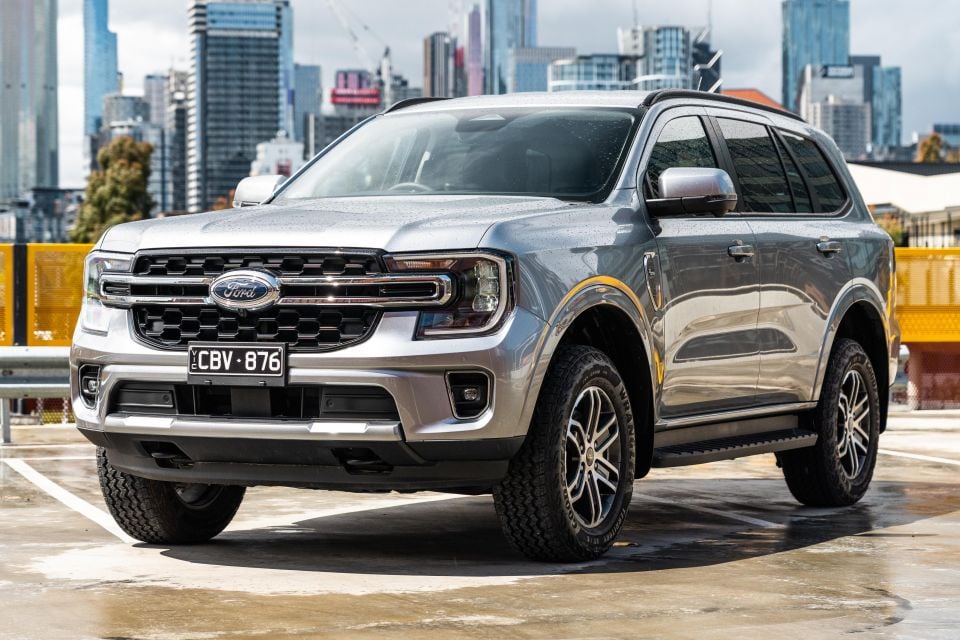
A 7.1L/100km fuel economy figure is achieved by a 2.0-litre Bi-Turbo four cylinder diesel engine producing 154kW of power and 500Nm of torque.
Equipped with an 80L fuel tank, the Everest is also capable of travelling long distances between fill-ups.
Rear-wheel drive models are the pick for efficiency, and will set you back $53,990 before on-road costs in base Ambiente specification.
| Ford Everest | |
|---|---|
| Fuel economy (claimed) | 7.1L/100km |
| Fuel tank capacity | 80L |
| Fuel type | Diesel |
BUY: Get in touch with a dealer about a Ford Everest MORE: Everything Ford Everest
On the budget end of the large SUV price spectrum, the Subaru Outback starts at $43,690 before on-road costs.
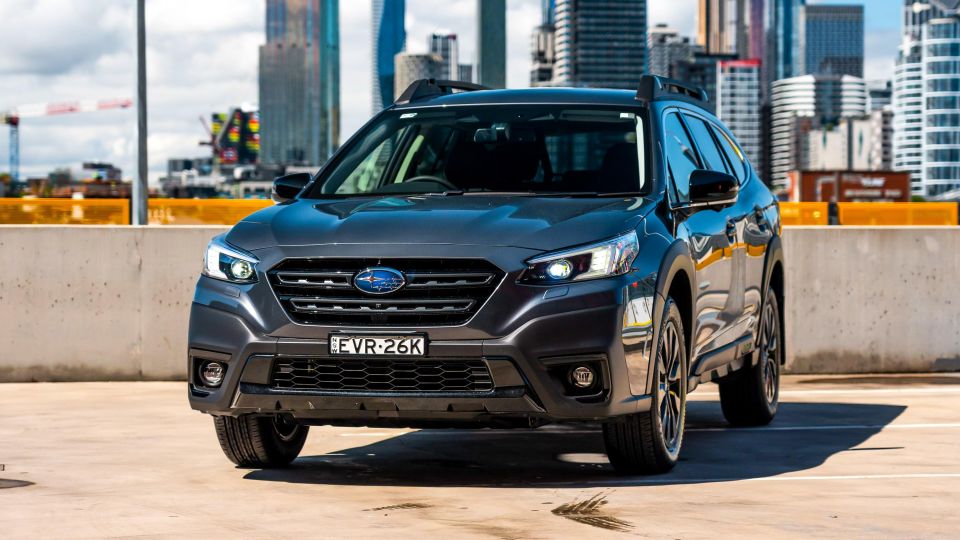
The base model packs the more efficient naturally aspirated 2.5-litre four-cylinder engine, which is rated at 7.3L/100km, while dearer variants pack a turbocharged 2.4-litre unit.
Outback AWD models feature an 11.6-inch touchscreen infotainment system, wireless smartphone mirroring, cloth upholstery, and 18-inch alloy wheels.
Subaru’s sole offering in the large SUV segment was the third best seller overall, with 12,903 sold in 2023.
| Subaru Outback | |
|---|---|
| Fuel economy (claimed) | 7.3L/100km |
| Fuel tank capacity | 63L |
| Fuel type | 91 RON |
BUY: Get in touch with a dealer about a Subaru Outback MORE: Everything Subaru Outback
Diesel power is also on offer in the form of the Hyundai Palisade – the Santa Fe’s bigger brother.
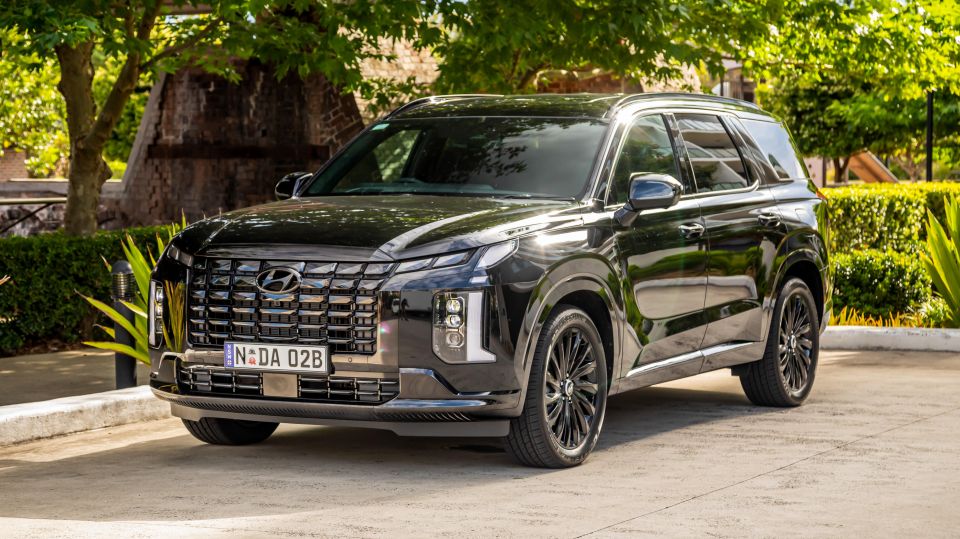
Under the bonnet you’ll find a 2.2-litre turbo-diesel four-cylinder producing 147kW and 440Nm, which is good for 7.3L/100km on the combined cycle.
The petrol Elite variant kicks off the range, but diesel examples start from $70,800 before on-road costs.
A third row of seats comes as standard, as well as a 12.3-inch touchscreen infotainment system, 12.3-inch digital instrument cluster, single-pane sunroof, and 20-inch alloy wheels.
| Hyundai Palisade | |
|---|---|
| Fuel economy (claimed) | 7.3L/100km |
| Fuel tank capacity | 71L |
| Fuel type | Diesel |
BUY: Get in touch with a dealer about a Hyundai Palisade MORE: Everything Hyundai Palisade
The most efficient of the European options is the Skoda Kodiaq, with its 7.5L/100km fuel economy rating.
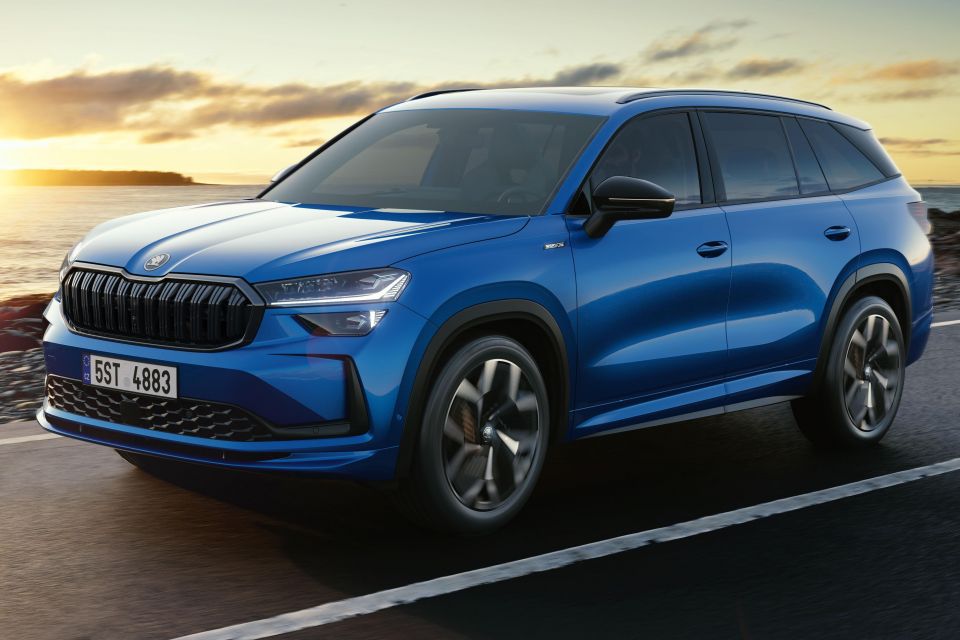
Kodiaq is the largest SUV produced by the Czech manufacturer, coming with a third row of seats as standard.
Lovers of performance cars will rejoice in the fact that the most efficient variant is the range-topping RS, with 180kW and 370Nm.
That power is derived from a 2.0-litre turbo-petrol four-cylinder engine, which propels the Kodiaq RS from 0-100km/h in 6.6 seconds.
| Skoda Kodiaq | |
|---|---|
| Fuel economy (claimed) | 7.5L/100km |
| Fuel tank capacity | 60L |
| Fuel type | 95 RON |
BUY: Get in touch with a dealer about a Skoda Kodiaq MORE: Everything Skoda Kodiaq
Based on the popular HiLux, the Toyota Fortuner goes head-to-head with the Ford Everest in the ute-based SUV sub-segment.
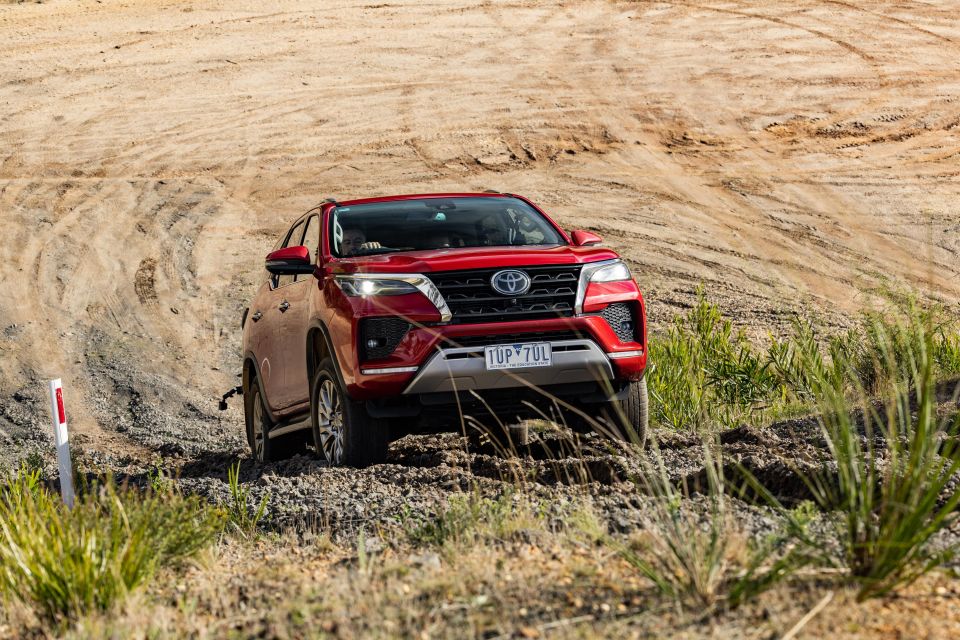
Priced between $53,775 before on-road costs and $66,755 before on-roads, all variants are powered by the same 2.8-litre turbo-diesel as the HiLux and LandCruiser Prado, which returns a claimed fuel economy of 7.6L/100km in this application.
Like the Everest, the Fortuner has a large 80L fuel tank.
Standard features include an 8.0-inch touchscreen infotainment system, reversing camera, and 17-inch alloy wheels.
| Toyota Fortuner | |
|---|---|
| Fuel economy (claimed) | 7.6L/100km |
| Fuel tank capacity | 80L |
| Fuel type | Diesel |
BUY: Get in touch with a dealer about a Toyota Fortuner MORE: Everything Toyota Fortuner
Want a Volkswagen Tiguan but need more room for the school run? Enter the seven-seat Tiguan Allspace.
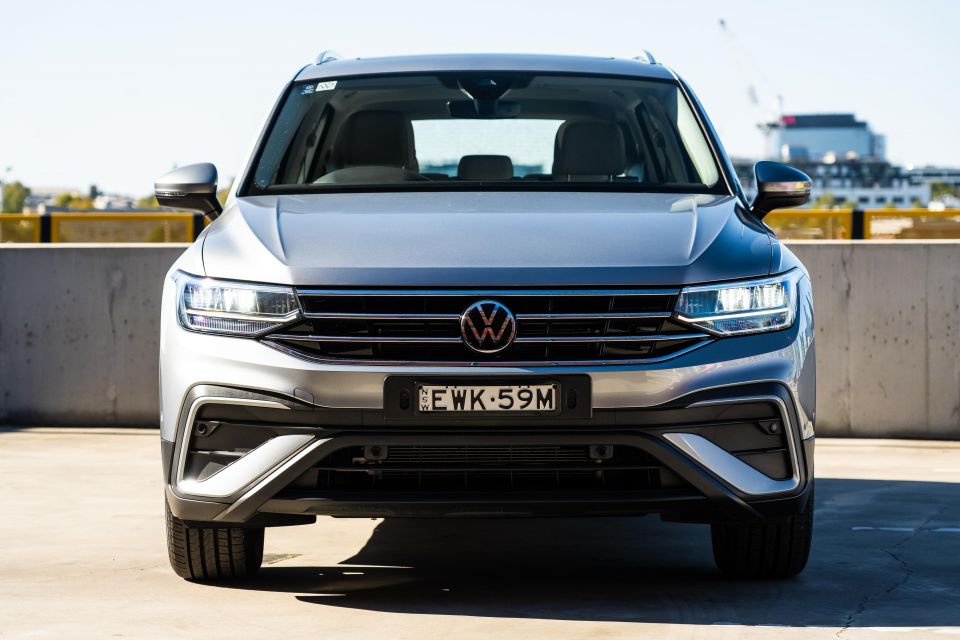
With a third row, the Allspace gains practicality and doesn’t skimp on efficiency, consuming the same 7.7L/100km as five-seat versions.
The least thirsty base 110TSI is powered by a 1.4-litre turbocharged four-cylinder petrol engine producing 110kW of power and 250Nm of torque.
It costs $45,990 before on-road costs, and is backed by Volkswagen’s five-year, unlimited-kilometre warranty.
| Volkswagen Tiguan Allspace | |
|---|---|
| Fuel economy (claimed) | 7.7L/100km |
| Fuel tank capacity | 60L |
| Fuel type | 95 RON |
BUY: Get in touch with a dealer about a Volkswagen Tiguan Allspace MORE: Everything Volkswagen Tiguan Allspace
Finishing second to the Ford Everest on the 2023 large SUV sales charts was the Isuzu MU-X, with 14,139 units sold.
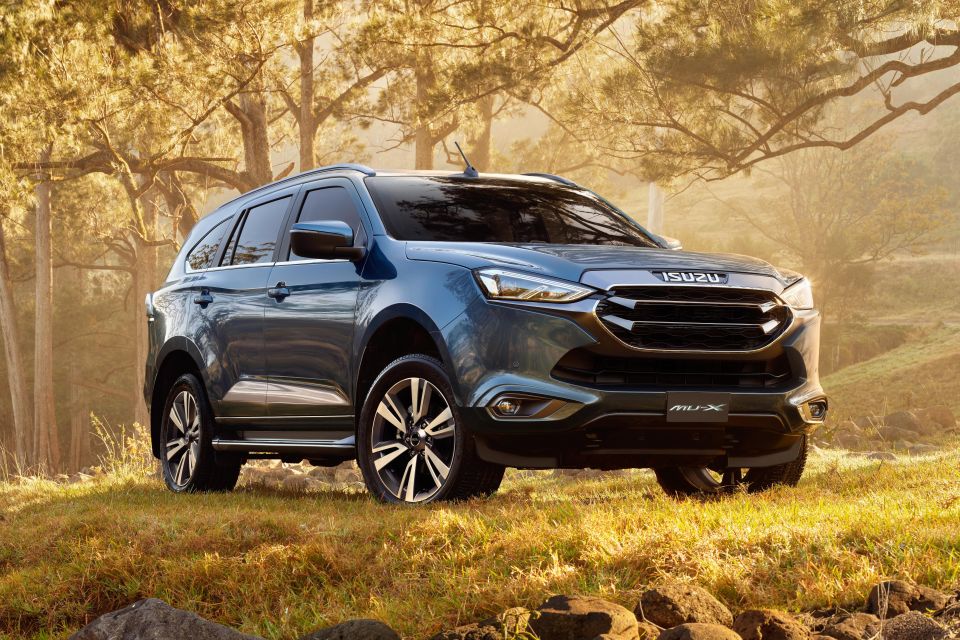
One of just two models sold by Isuzu Ute in Australia, the MU-X is based on the D-Max and comes in a whopping nine variants.
The most efficient models feature a 1.9-litre turbo-diesel four-cylinder, although the 3.0-litre versions don’t drink a whole lot more.
Base 1.9-litre cars start from $47,400 before on-road costs.
| Isuzu MU-X | |
|---|---|
| Fuel economy (claimed) | 7.8L/100km |
| Fuel tank capacity | 80L |
| Fuel type | Diesel |
BUY: Get in touch with a dealer about a Isuzu MU-X MORE: Everything Isuzu MU-X
Like several other large SUVs mentioned here, the Mitsubishi Pajero Sport relies on diesel power. However, it exclusively sends drive to all four wheels, which detracts from efficiency.
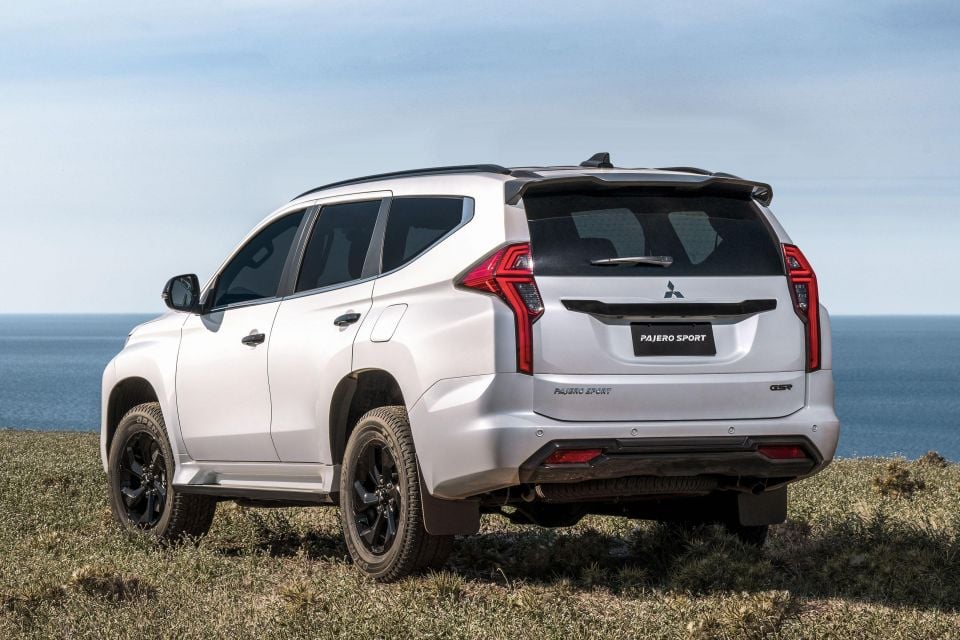
Mitsubishi claims a combined average fuel economy of 8.0L/100km for the Pajero Sport, to go with outputs of 133kW and 430Nm.
Pricing ranges between $51,450 before on-road costs and $64,840 plus on-roads, and each of the four variants has an identical efficiency rating.
Mitsubishi’s standard warranty covers five years or 100,000km of driving, but it can be extended up to 10 years or 200,000km if the car is serviced on time through a Mitsubishi dealer.
| Mitsubishi Pajero Sport | |
|---|---|
| Fuel economy (claimed) | 8.0L/100km |
| Fuel tank capacity | 68L |
| Fuel type | Diesel |
BUY: Get in touch with a dealer about a Mitsubishi Pajero Sport MORE: Everything Mitsubishi Pajero Sport
The GWM Tank 300 was already a budget entry point into the 4×4 market, and hybrid variants just got even cheaper.
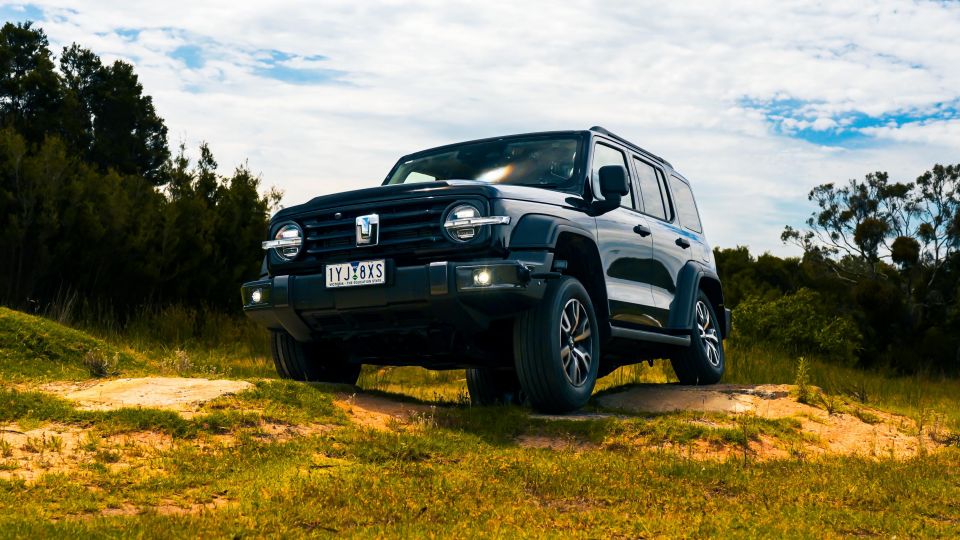
Lux Hybrid examples have been discounted by $3000 to $47,990 drive-away until the end of the financial year. For the money you get a 2.0-litre turbocharged four-cylinder petrol engine producing 180kW of power and 380Nm of torque, paired with a 78kW/268Nm electric motor.
Fuel efficiency is quoted at 8.4L/100km, and the engine is built to run on 91 RON unleaded petrol.
Base models are equipped with a 12.3-inch touchscreen infotainment system, 12.3-inch digital instrument cluster, 17-inch alloy wheels, and a sunroof.
| GWM Tank 300 | |
|---|---|
| Fuel economy (claimed) | 8.4L/100km |
| Fuel tank capacity | 75L |
| Fuel type | 91 RON |
BUY: Get in touch with a dealer about a GWM Tank 300 MORE: Everything GWM Tank 300
The GWM Tank 500 uses the same running gear as the 300, but is slightly less efficient due to its increased dimensions.
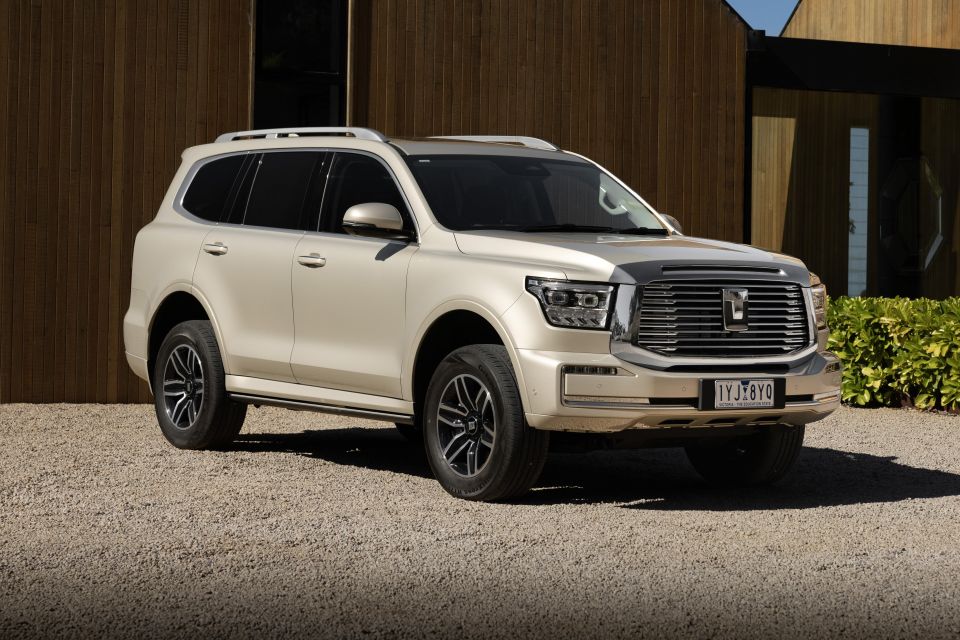
While the 500 consumes 8.5L/100km – 0.1L/100km more than its stablemate – it also has a larger 80L fuel tank.
Pricing kicks off at $66,490 drive-away, which gets you a base Lux model with a 14.6-inch touchscreen infotainment system, 12.3-inch digital instrument cluster, heated front seats, side steps, and a sunroof.
| GWM Tank 500 | |
|---|---|
| Fuel economy (claimed) | 8.5L/100km |
| Fuel tank capacity | 80L |
| Fuel type | 91 RON |
BUY: Get in touch with a dealer about a GWM Tank 500 MORE: Everything GWM Tank 500
Coming in at $50,000 drive-away in base specification, the Ssangyong Rexton drinks 8.7L/100km on the combined cycle.

The Korean seven-seat SUV is powered by a 2.2-litre turbo-diesel four-cylinder engine producing 150kW of power and 441Nm of torque, mated to an eight-speed automatic transmission and a part-time four-wheel drive system.
Along with seven seats, the Rexton gets a 12.3-inch touchscreen infotainment system, 12.3-inch digital instrument cluster, and 18-inch alloy wheels as standard.
A total of 1844 were sold in 2023.
| Ssangyong Rexton | |
|---|---|
| Fuel economy (claimed) | 8.7L/100km |
| Fuel tank capacity | 70L |
| Fuel type | Diesel |
BUY: Get in touch with a dealer about a Ssangyong Rexton MORE: Everything Ssangyong Rexton
If you want size without spending big, the LDV D90 is among the options available.
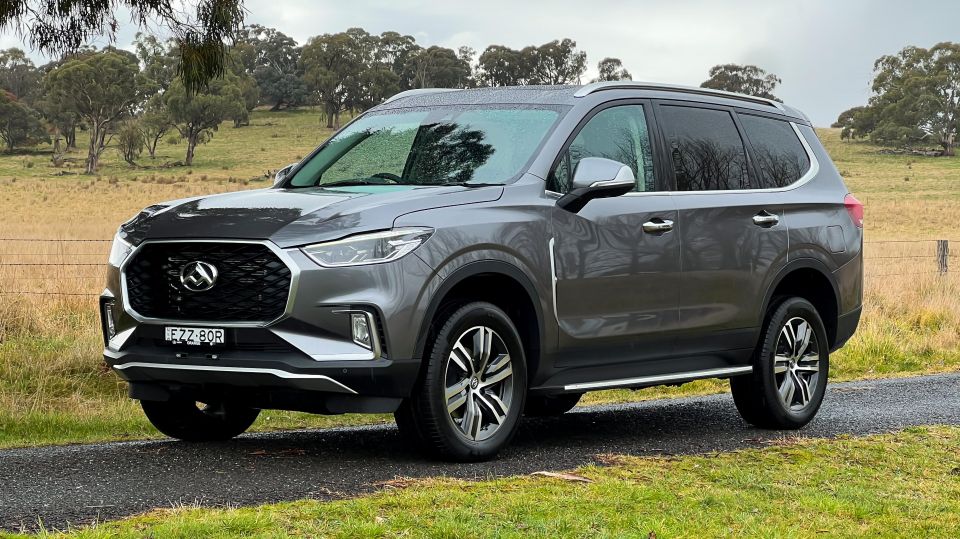
A seven-seater by design, the D90 can be had for $38,937 in base two-wheel drive specification, while even flagship diesel Executive models are only just above $50,000.
The most efficient model is the diesel, which consumes a claimed average of 9.1L/100km.
Executive models also gain an 8.0-inch digital instrument cluster, 19-inch alloy wheels and a sunroof, among other extras.
| LDV D90 | |
|---|---|
| Fuel economy (claimed) | 9.1L/100km |
| Fuel tank capacity | 75L |
| Fuel type | Diesel |
BUY: Get in touch with a dealer about a LDV D90 MORE: Everything LDV D90
We shift from one end of the price spectrum to the other with the Jeep Wrangler, the most expensive car in the segment.
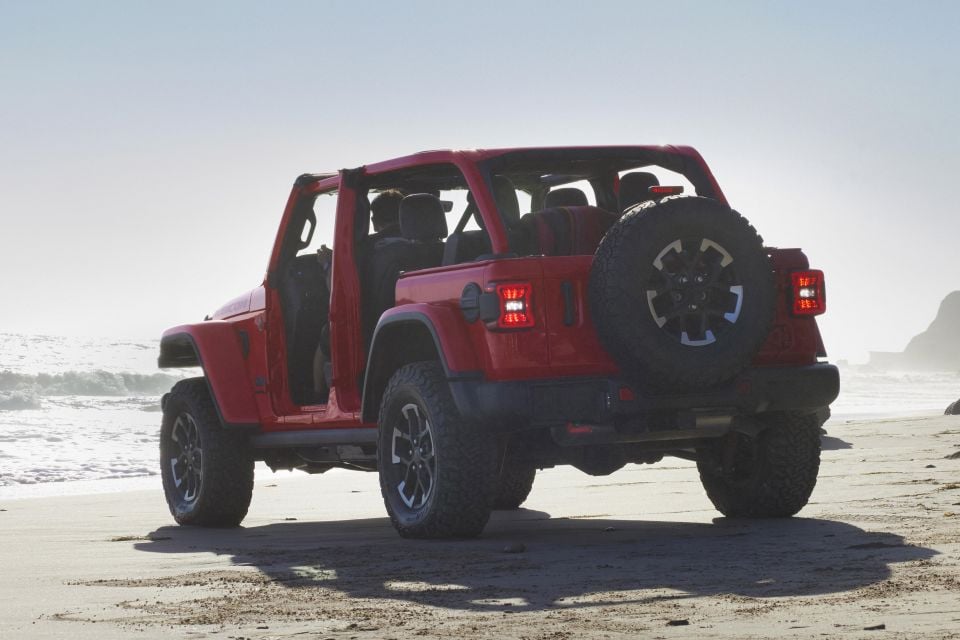
Despite costing $53,450 before on-road costs back in 2018, the Wrangler is now a $75,000-plus proposition. Rubicon four-door varieties are priced at $90,450 plus on-roads.
It ranks well below the segment average for efficiency, even after replacing the naturally aspirated V6 with a turbocharged 2.0-litre four-cylinder petrol engine.
Jeep’s new engine produces 200kW of power and 400Nm of torque.
| Jeep Wrangler | |
|---|---|
| Fuel economy (claimed) | 9.2L/100km |
| Fuel tank capacity | 81L |
| Fuel type | 95 RON |
BUY: Get in touch with a dealer about a Jeep Wrangler MORE: Everything Jeep Wrangler
Rounding out this list is the Nissan Pathfinder, with a claimed average fuel consumption of 10.5L/100km.
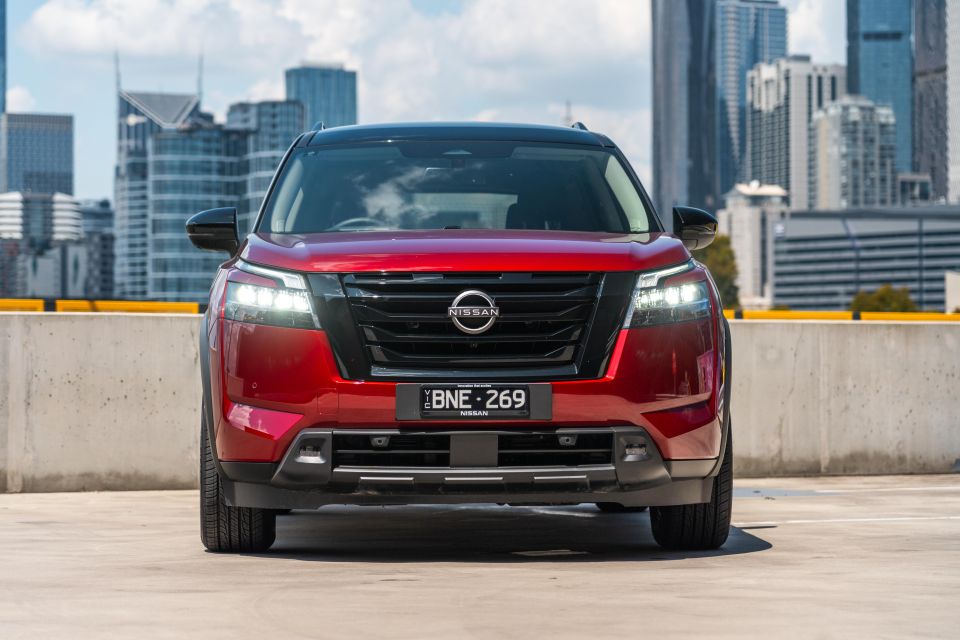
Under the bonnet is a 3.5-litre naturally aspirated V6 with 202kW of power and 340Nm of torque, mated to a nine-speed automatic transmission.
Two variants are available, the Ti and Ti-L, priced at $71,490 before on-road costs and $81,490 plus on-roads, respectively.
Standard features include a 9.0-inch touchscreen infotainment system, 10.8-inch head-up display, heated front seats and a powered tailgate.
| Nissan Pathfinder | |
|---|---|
| Fuel economy (claimed) | 10.5L/100km |
| Fuel tank capacity | 71L |
| Fuel type | 91 RON |
BUY: Get in touch with a dealer about a Nissan Pathfinder MORE: Everything Nissan Pathfinder
Josh Nevett is an automotive journalist covering news and reviews, with a background in motorsport journalism.


Damion Smy
6 Hours Ago
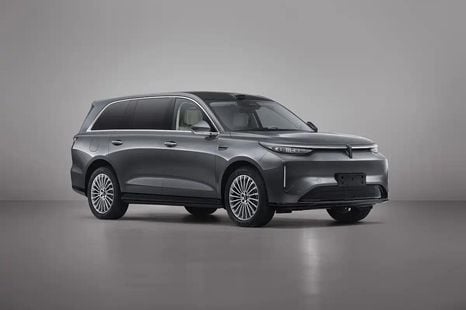

William Stopford
7 Hours Ago
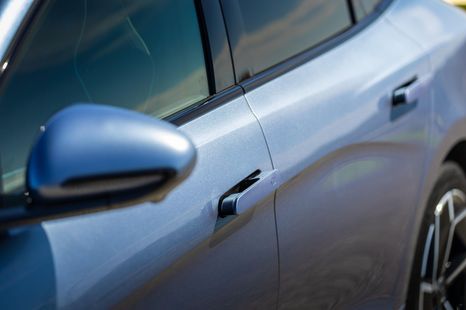

Damion Smy
9 Hours Ago
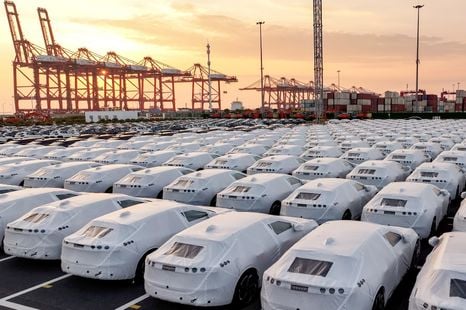

Ben Zachariah
10 Hours Ago
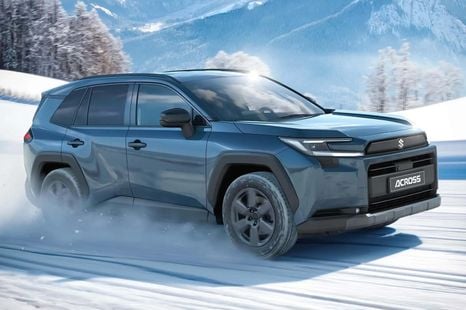

Damion Smy
11 Hours Ago
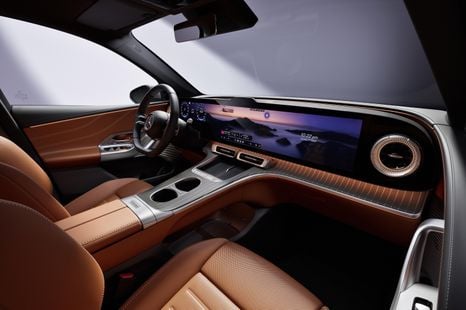

William Stopford
11 Hours Ago
Add CarExpert as a Preferred Source on Google so your search results prioritise writing by actual experts, not AI.